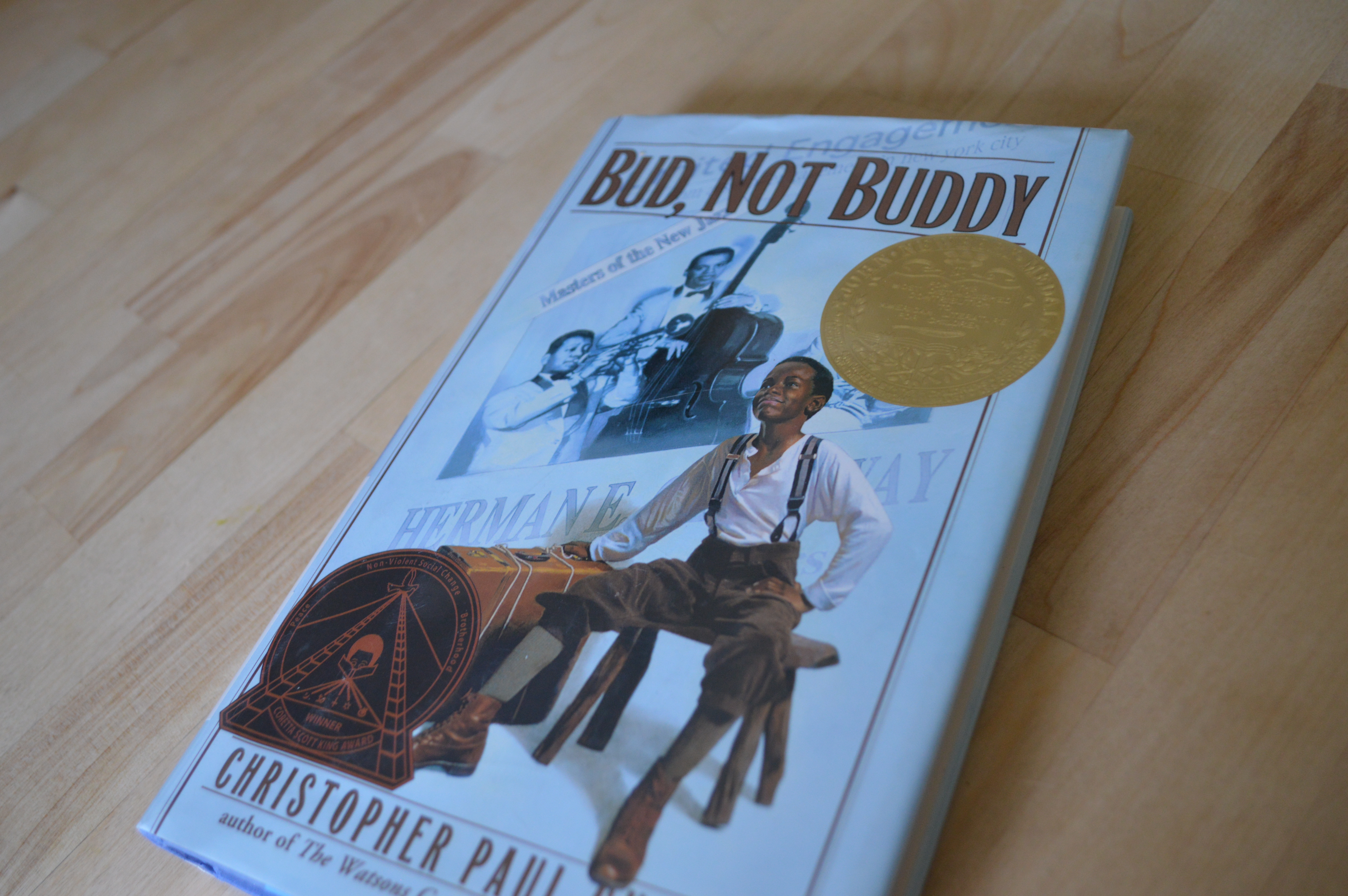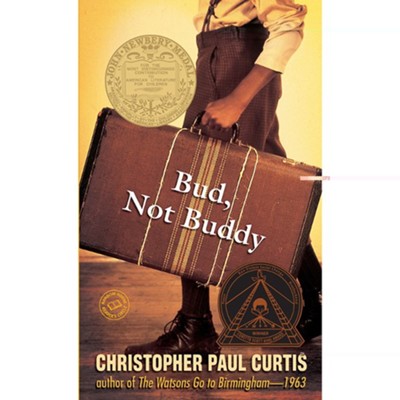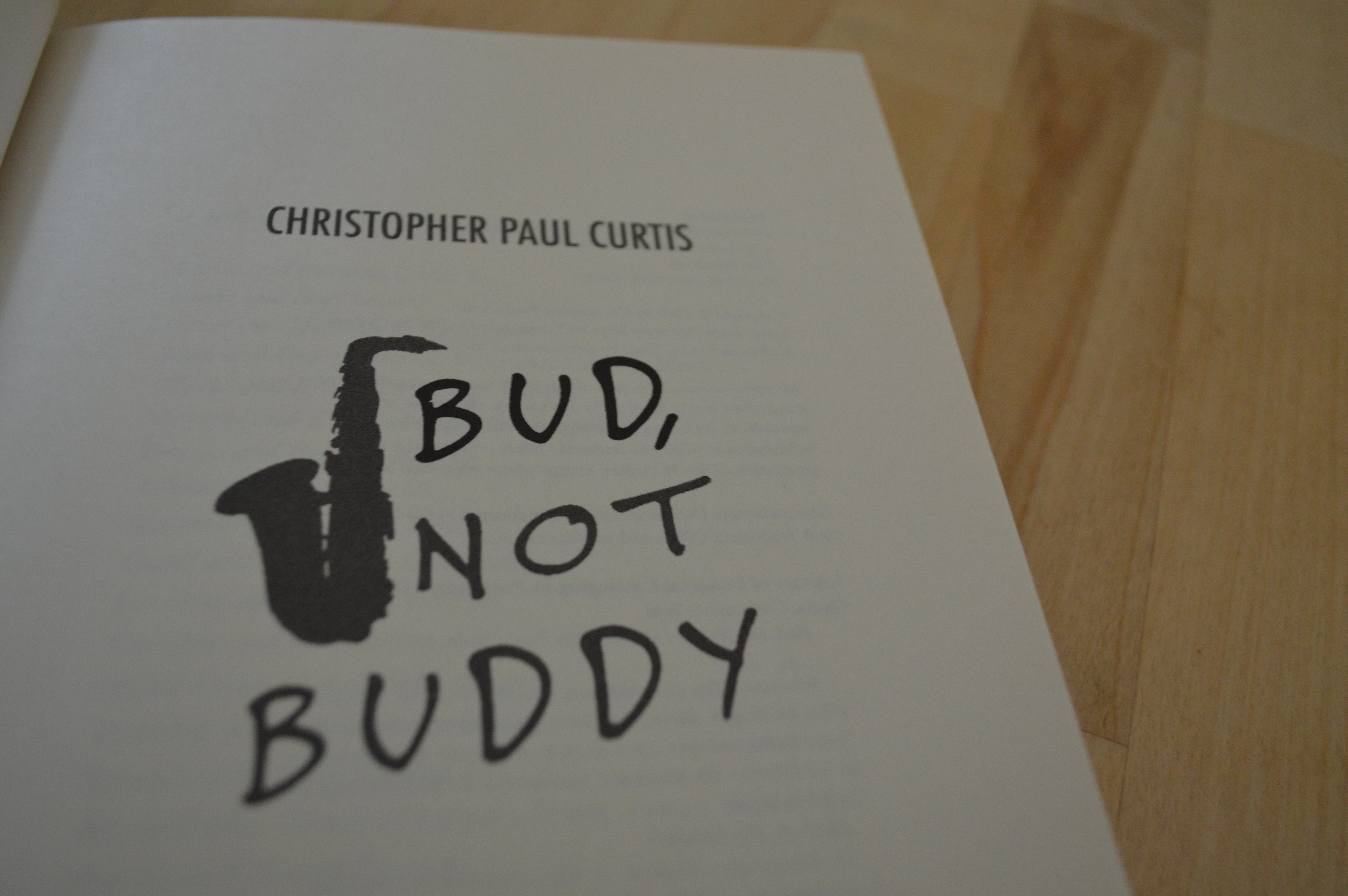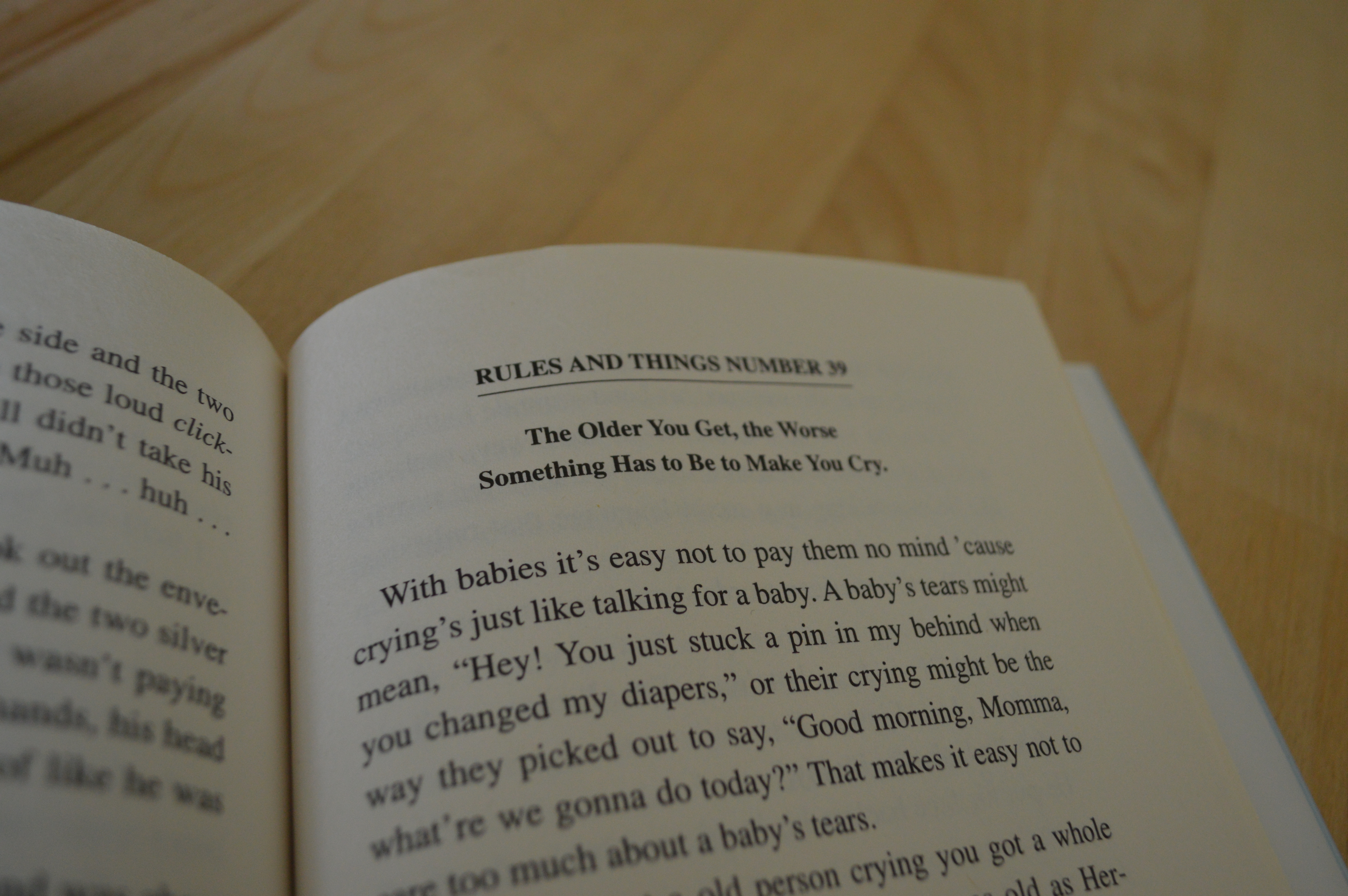
2000 Newbery winner, Bud, Not Buddy, by Christopher Paul Curtis: Bud Caldwell, age ten, is a motherless boy with spunk and a hunch that he can find his long-lost father. Set in depression era Flint, Michigan, Bud is a young African American boy who has been at an orphanage or out at various foster families since his mother died when he was six. In his few personal possessions are fliers from Herman E. Calloway and the Dusky Devastators of the Depression!!!!!! Bud is convinced that this must be a link to his father and sets out to try and track him down.
What I liked.

Bud’s voice and his “Bud Caldwell’s Rules and Things for Having a Funner Life and Making a Better Liar Out of Yourself” is unique and fun. Even though he is going through some very difficult things, and taking a small tour of how hard life in 1936 was, especially for black Americans looking to unionize, Bud’s perspective is so funny and quirky. It’s one of the best narrative voices that I’ve read in a Newbery.

What was interesting . I thought the author’s note at the end that he incorporated his own two grandfather’s into the two main grandfather figures in the book was so interesting. It also made me happy that these two men that seemed real were in some sense more real than the average fictional character. Also, I thought it was interesting to read about Flint, Michigan, about which before this I had really only the association of the wide-spread high levels of lead in the city’s water crisis. But in the 1930s it was also the birthplace of General Motors and the important auto-workers’ union.

What were some limitations. I suppose my only thought about the limitation of this book was I thought that it ended before I was ready for it to be over. I think it worked well for the story to keep it brief and end it where it was. (It would be a major spoiler if I said where it ended.) I wish there was a sequel that would pick up where this book leaves off. But I also think that Christopher Paul Curtis was pretty skilled at crafting such a pithy, spunky book that left readers wanting more. At the very least it makes me want to read other Christopher Paul Curtis books!

Similarity to other Newbery winners. It reminded me most of Roll of Thunder Hear My Cry which also has a young spunky African American child on the cusp of adolescence introducing middle grade readers to the Great Depression and the challenges of being Black in the midst of it. I am a little bit surprised that this book is really one of the first books that really centers on a quest to find a lost father. Adam of the Road and A Door in the Wall have a journey to be reunited with a parent and there certainly are a number of books that center on orphans (although I would say mostly mothers dying or both parents dying, but I can’t think of one with just a father gone except at the end of Sounder) or complicated relationships with fathers, but no big epic journeys to find a lost father, which I think is not a super uncommon theme in literature in general so it’s a little surprising this is the first Newbery to touch on it. With its theme of music, it reminds me a little of the 2007 movie August Rush.

What it teaches me as a writer. There are so many things in this book that make me wish that I could incorporate them into my writing. I think the distinct and strong narrative voice is perhaps the top one. I think the author’s ability to make Bud at times a reliable narrator and at times a very obviously unreliable one lost in his fantasies and little boy theories and understandings of the world and then to have the ending surprise both Bud and the reader is really skillfully done. I think I lean towards having my main characters be sort of “everyman” windows into the world, and I think a strong narrative voice is so impressive because it seems like something I tend to only be able to pull off with my minor characters.
Have you read Bud, Not Buddy? What are your favorite books with a quirky, funny narrator?
*Note* This post contains Amazon affiliate links, which means if you were to buy a book, I’d get a tiny commission at no cost to you. Thanks for supporting Stories & Thyme!*